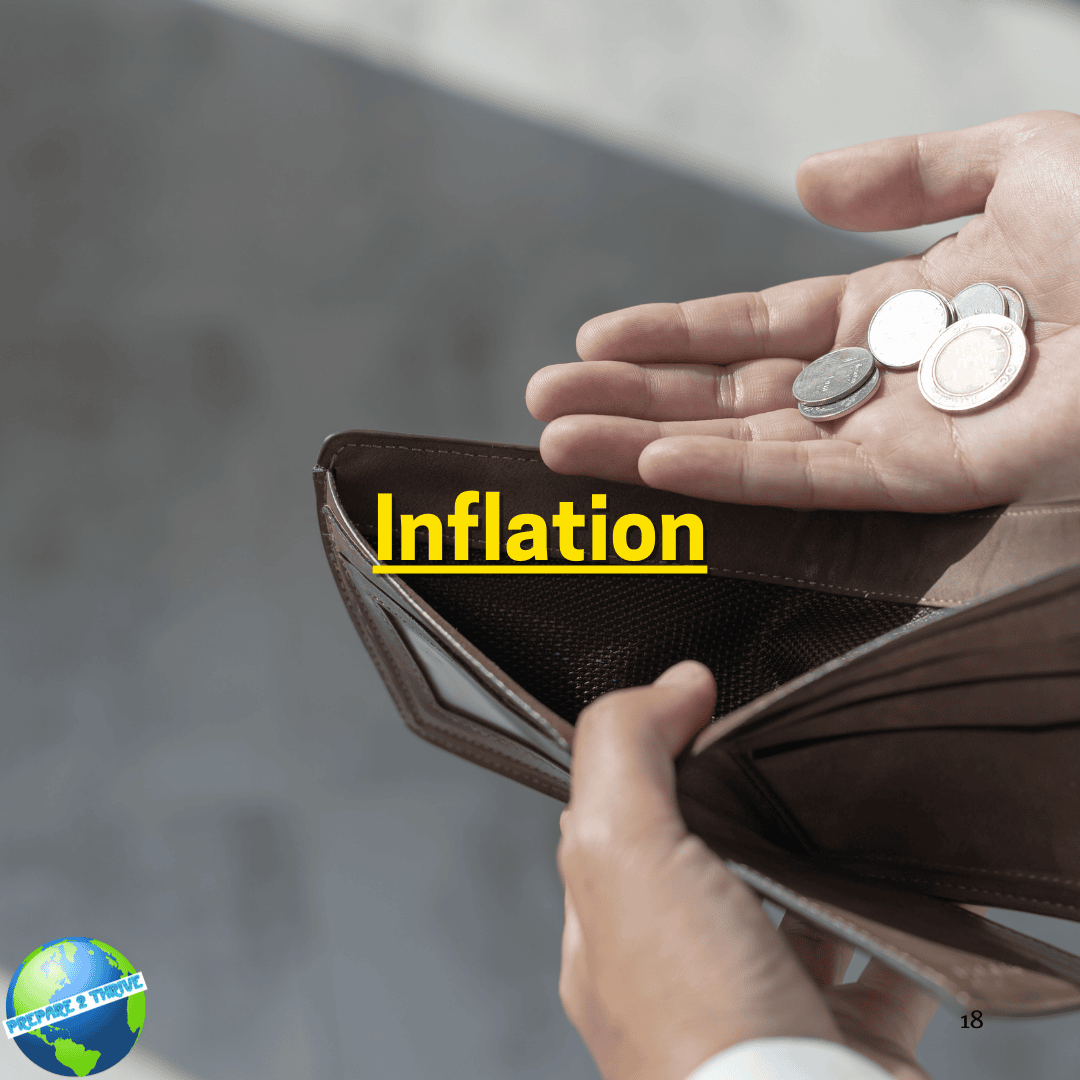What it is and why at it's most basic, inflation is theft.
The government is stealing from you.
The government provides services, but to do so, it needs money. Most of that money comes in the form of taxes. Some people claim that taxes are theft. I disagree. We agree to pay our taxes (even if it's begrudgingly), and we receive services for that money in the form of healthcare, police and fire protection, and more.
But if the government took more money from you, without your permission and without telling you, then I would consider that theft.
So what is inflation. Let's imagine a very simple island, with a simple economy. On this island they produce bananas, and only bananas. This year they produce 100,000 bananas. Since it's hard to carry around bananas in our pocket, the government gives out certificates to be used as currency. They call this a "BAN". The country has 100,000 bananas, and 100,000 BANs. If you go out and pick 2 bananas you will be paid 2 BAN, that you can exchange for 2 bananas. Next year, the island produces 100,000 bananas, for a total of 200,000. If the government prints an additional 100,000 BANs, (total circulation of 200,000 BANs) then there is no inflation. Each banana still costs 1 BAN. But instead, let's say the government needs more "money", and so it print 300,000 BANs, for a total in circulation of 400,000 BANs. Now there are 400,000 BANs, but only 200,000 bananas. If you wanted a banana, you would have to pay 2 BANs. What happened, last year you earned 2 BANs and could buy 2 bananas. This year your 2 BANs only gets you 1 banana. Where did your other banana go?
Where it went is the government stole it. When they printed the extra BANs they were spending your banana, even though you never gave it to them. Without telling you, without getting your permission, they stole one of your bananas.
Remember we said that value comes from scarcity? When the government prints more money it becomes less scarce, and therefore, less valuable.
That is a simplified example. Rarely would a government inflate the economy by 100%. Usually it's only a few percent, and everyone takes a small hit. People are so used to this happening, that they never stop and think about whether it should be happening.
But let's take a minute to think about that. Should things be getting more expensive each year? In the past, an item was valued at the amount of materials that went into it, and the amount of human time it took to create it. While the amount of materials hasn't changed, the amount of human time certainly has changed. But it hasn't increased, the amount of time has decreased. Automation, and increased efficiencies means items are cheaper to build each year. Ford's first assembly line car, the Model T, cost $400. One could argue that it was a very basic car, today's are much more complex. Fair enough, but what if you built a simple car that was identical to the Model T, could you do it for $400?
So why do they cost more? That is because each year governments steal more and more money, and have been doing so for decades.
Below is a video by Canadian Conservative Pierre Poilievre. Note that I am not right wing, or conservative. But he's talking truth here.



